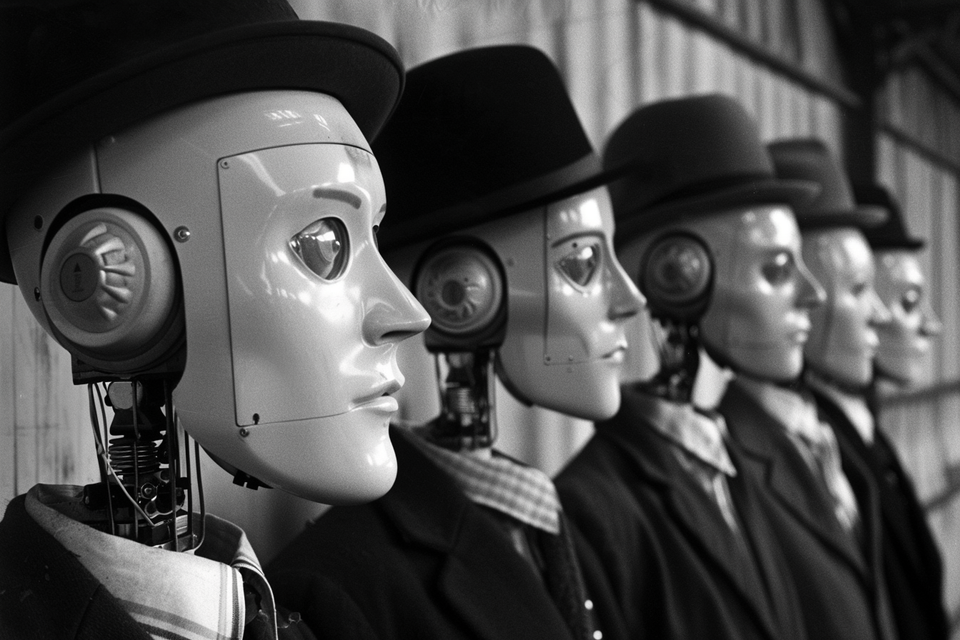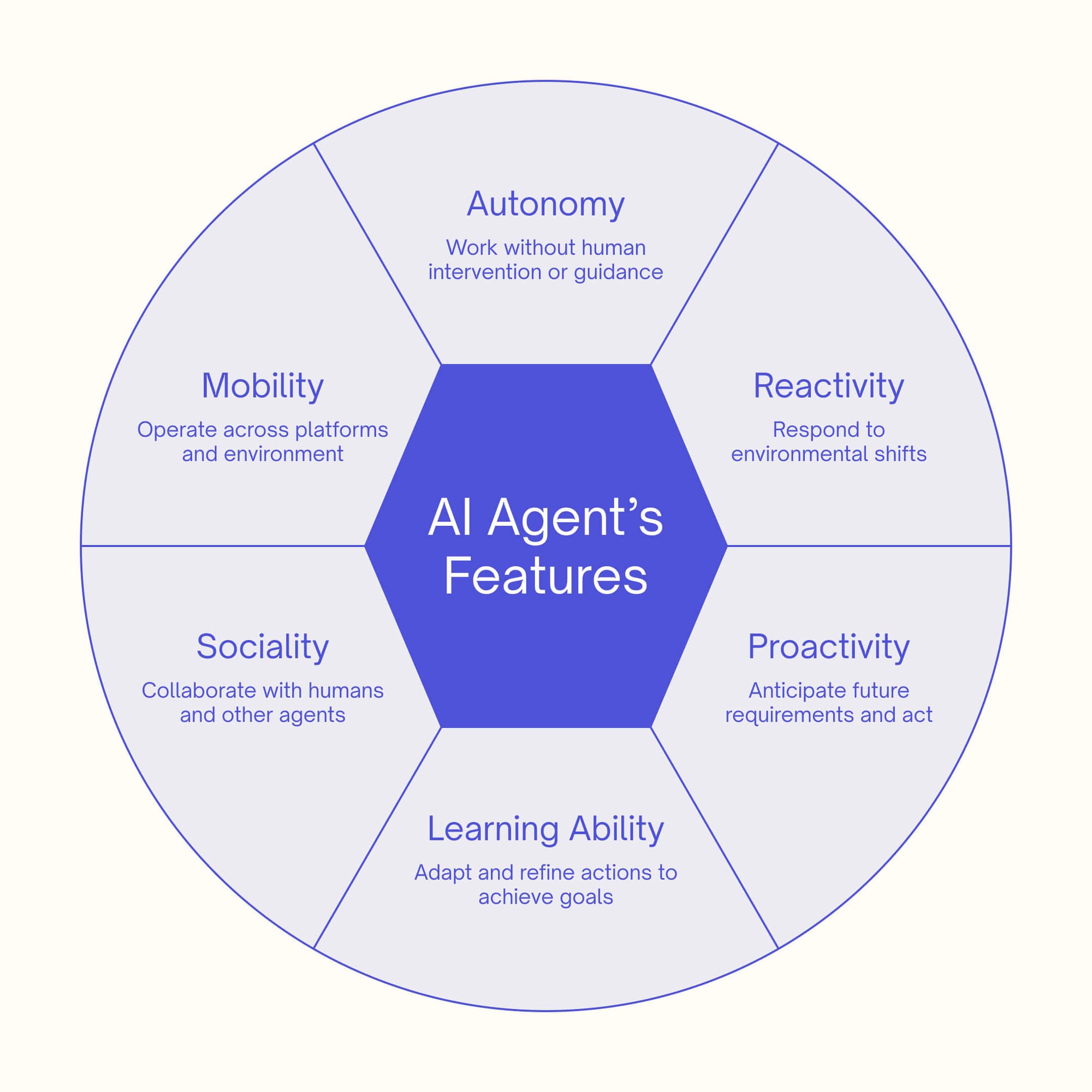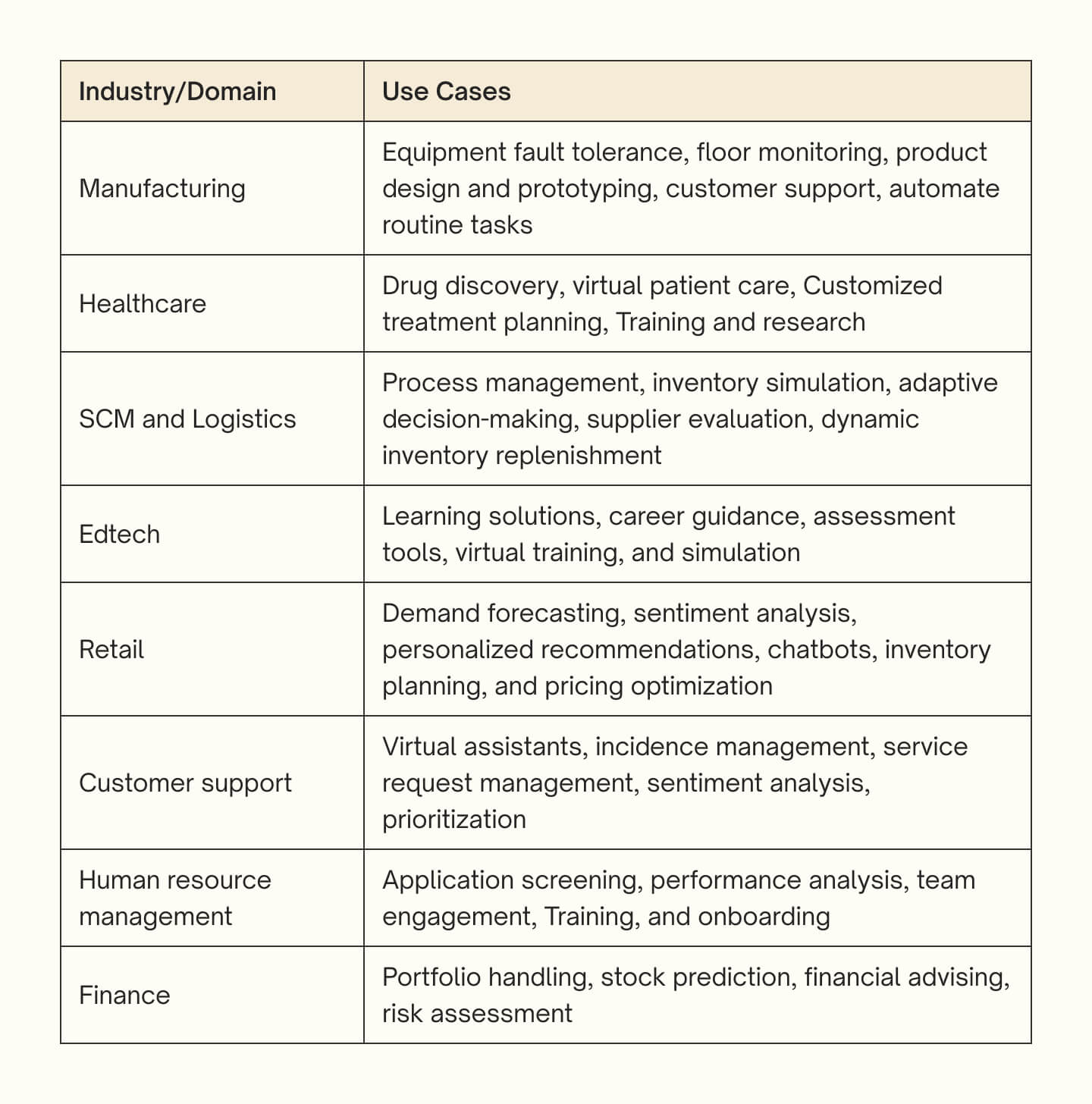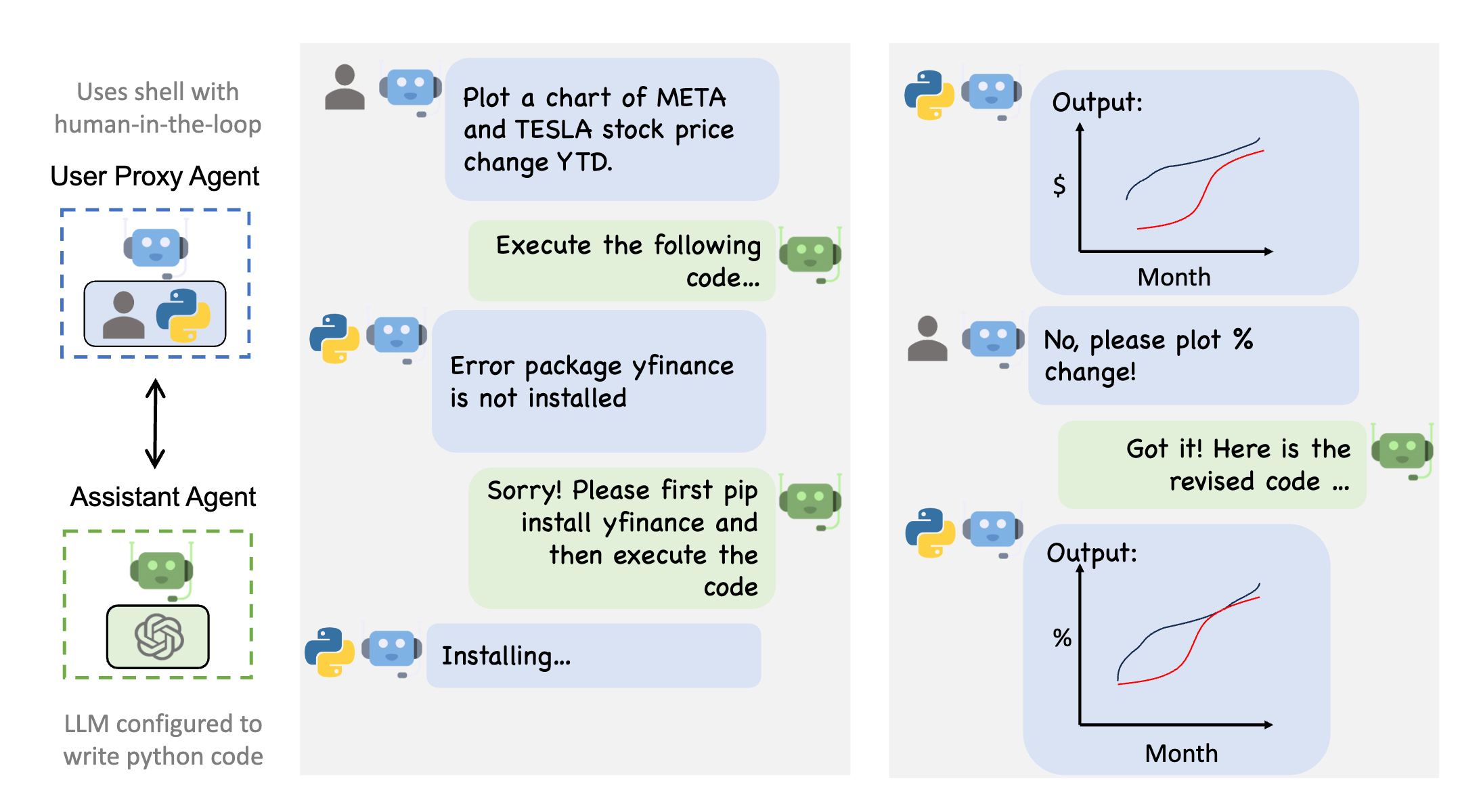Intelligent Automation: How AI agents are redefining productivity

As the Director of Digital for Radio Milwaukee, a non-profit public media company, I am very excited to explore the potential of AI agents. What are AI agents? They are sophisticated software programs revolutionizing how organizations operate, making decisions and performing tasks autonomously. By leveraging advanced technologies like machine learning and natural language processing, AI agents are poised to transform industries and drive unprecedented efficiency and innovation.
Andrew Ng, a renowned AI expert and founder of DeepLearning.AI, recently shared his insights in a video on the future of AI agents and their transformative impact on various sectors. "Agents is the term around a lot. There's a lot of consultant reports talk about agents the future of AI, blah, blah, blah," Ng remarked during his presentation. "I want to be a bit concrete and share with you the broad design patterns I'm seeing in agents."
Ng explains that AI agents can be categorized into four main design patterns: reflection, tool use, planning, and multi-agent collaboration. "Reflection is a tool that I think many of us should just use. It just works," Ng emphasized. "Planning and multi-agent collaboration, I think, is more emerging. When I use them, sometimes my mind is blown for how well they work, but at least at this moment in time, I don't feel like I can always get them to work reliably."

One of the key advantages of AI agents is their ability to work iteratively, breaking down complex tasks into manageable sub-tasks and continuously refining their approach. As Ng explains, "With an agentic workflow, you have an AI system that can write an essay outline, conduct research, write a first draft, review and revise its own work, and iterate through this process multiple times." This approach delivers remarkably better results compared to traditional, non-agentic workflows.
Last week, I described four design patterns for AI agentic workflows that I believe will drive significant progress this year: Reflection, Tool use, Planning and Multi-agent collaboration. Instead of having an LLM generate its final output directly, an agentic workflow prompts…
— Andrew Ng (@AndrewYNg) March 28, 2024
The potential applications of AI agents are vast, spanning businesses, non-profits, and public media. For businesses, AI agents can streamline customer service, sales, marketing, HR, recruiting, and financial management. Imagine AI-powered chatbots handling customer inquiries 24/7, providing personalized recommendations, and seamlessly escalating complex issues to human agents. In sales and marketing, agents can analyze customer data to identify high-value leads, optimize ad targeting, generate content ideas, and even create personalized pitches.

Non-profits can also greatly benefit from AI agents. These intelligent systems can revolutionize donor engagement by analyzing giving history, communication preferences, and interests to deliver personalized messaging and nurture long-term relationships. AI agents can also streamline volunteer management, matching individuals with opportunities based on skills and preferences while automating communication and coordination. In program delivery, agents can help scale impact by automating tasks, analyzing data to measure outcomes, and providing virtual assistance to beneficiaries.
For public media organizations like Radio Milwaukee, AI agents offer exciting possibilities. They can enhance content creation and audience engagement by analyzing user data to recommend personalized content, automate routine news stories, fact-check claims, and moderate comments. Chatbots can provide instant, context-aware responses to viewer questions, enrich stories with additional resources, and even moderate live discussions and Q&A sessions.
The rise of open-source AI agent tools and frameworks has made this technology more accessible. AutoGPT, an experimental application showcasing the capabilities of the GPT-4 language model, enables the development of autonomous agents that can plan and execute tasks. BabyAGI, built on GPT-4 and OpenAI, facilitates autonomous task execution, while Microsoft's AutoGen supports multi-agent conversations for diverse task completion.

One promising tool is AutoGen, which can be leveraged to create specialized agents for businesses, non-profits, and public media. Here's a step-by-step guide on how AutoGen can help personalize content:
- Install and set up AutoGen with API keys and preferences.
2. Define audience segments based on demographics, interests, behaviors, or funnel stage.
3. Create custom templates for each type of content, incorporating dynamic placeholders.
4. Set up personalization rules and logic for each audience segment.
5. Integrate AutoGen with real-time data sources to continuously monitor and analyze user interactions.
6. Generate and deliver personalized content automatically based on templates and rules.
7. Test, measure, and optimize personalization strategies using AutoGen's analytics and reporting features.
For those seeking a no-code solution, Zapier's AI Actions empower users to create custom-trained AI assistants that can interpret natural language instructions and perform complex tasks across multiple apps and services. Imagine setting up a Zap (automated workflow) that triggers whenever a new customer submits a support ticket. The Zap passes the ticket information to an AI Action, which analyzes the content, categorizes the issue, and generates a personalized response template for the support team to review and send.
Public media organizations can leverage Zapier's AI Actions to automate content summarization, curate engaging newsletters, and streamline grant proposal evaluations. Non-profits can use AI Actions to send personalized thank-you emails to donors based on their interests and donation history or intelligently match volunteer applicants with the most suitable opportunities.
As Ng points out, adopting AI agents may require a shift in our expectations and workflows. "I think we'll need to learn to dedicate the tasks to an AI agent and patiently wait minutes, maybe even hours, for a response," he explains. "I think we need to be difficult. We need to do that with some of our AI agents as well."
Looking ahead, Ng is excited about the future of AI agents and their potential to drive innovation across industries. "I'm really looking forward to Claude 5, and GPT-4, and GPT-5, and Gemini 2.0, and all these other wonderful models that many are building," he enthused. "Part of me feels like if you're looking forward to running your thing on GPT-5 zero-shot, you may be able to get closer to that level of performance on some applications than you might think with agentic reasoning on an early model."
As you embark on your AI agent journey, there are several great resources to learn more about this transformative technology. Scrimba's Learn AI Agents Course offers an interactive, hands-on approach to building smarter, more capable agents. AIAgent.app provides a web app for creating autonomous agents that make choices and perform tasks based on your goals. Zapier's "What is an AI agent?" blog post offers a comprehensive overview of how these systems work and their real-world applications. Microsoft's AutoGen blog delves into the technical aspects of agent architecture, multi-agent systems, and cutting-edge research. You can also check out Reddit's r/ChatGPTCoding Thread on Open Source AI Agents.
The future of AI agents is incredibly promising, and their potential to revolutionize businesses, non-profits, and public media is truly exciting. Organizations can unlock new levels of efficiency, personalization, and impact by harnessing the power of machine learning, natural language processing, and autonomous decision-making. As Ng concludes, "Honestly, the path to AGI feels like a journey rather than a destination, but I think this type of agent workflow could help us take a small step forward on this very long journey."
Additional notable open source AI agent tools and frameworks:
- Adala - A lightweight library that leverages Language Models (LLMs) to enable natural language interactions, allowing you to source and converse with data.
- AgentForge - A code-first agent framework for seamlessly planning and executing data analytics tasks.
- AgentVerse - A fast and lightweight framework for creating decentralized agents with ease.
- AI Legion - A universal AI agent frontend that handles the user interface while you focus on building the backend.
- CrewAI - An open-source framework that enables the orchestration of role-playing, autonomous AI agents, fostering collaborative intelligence to tackle complex tasks seamlessly.
- EdgeChains.js - A TypeScript/JavaScript production-friendly generative AI framework that works anywhere WebAssembly does.
- Graphsignal - An AI agent that can see, control, navigate, and perform tasks for you on your browser.
- Superagent - A tool that allows creating agents without coding, simplifying the configuration and deployment of LLM agents to production.
- SuperAGI - An open-source autonomous AI framework to enable development and deployment of autonomous agents, with features like concurrent agents, performance telemetry, and agent memory storage.
- Sweep - A GitHub assistant that helps fix small bugs and implement small features by simply creating a ticket with the "Sweep:" prefix.
- Taxy AI - A full browser automation tool that uses GPT-4 to control your browser and perform repetitive actions on your behalf.
- WorkGPT - An agent framework similar to AutoGPT or LangChain, allowing you to give it a directive and an array of APIs to converse back and forth with the AI until the directive is complete.
- XAgent - An open-source experimental Large Language Model (LLM) driven autonomous agent that can automatically solve various tasks, with features like a dual-loop mechanism and universal language function calling.
These tools and frameworks showcase the diverse range of approaches to building AI agents, from low-code solutions to highly customizable and extensible frameworks. As the field of AI agents continues to evolve, these open source projects provide developers with powerful tools to create intelligent, autonomous systems that can revolutionize various industries and applications.